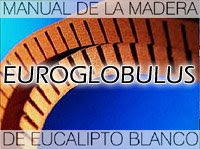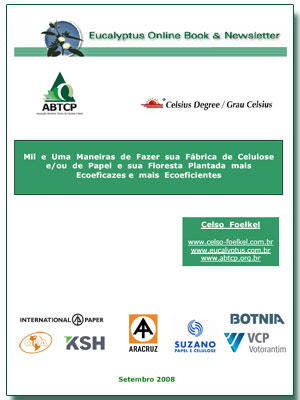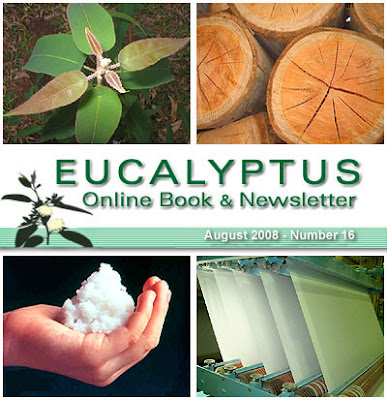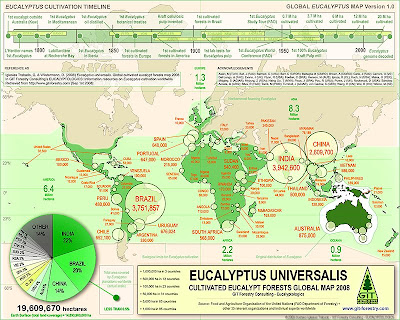El analfabetismo ecologista: de ellos a usted (I)
Por Xusto de Andrade (*)
Ruidosos, como es costumbre, se difunden mensajes con regularidad en diferentes medios para celebrar el lanzamiento de esta o aquella campaña ecologista, usualmente “en contra de”, porque lo de “a favor de” ni da titulares de prensa, ni atrae publicidad, ni aumenta el flujo de donaciones. Ruidosos. Pero ineficaces para alcanzar un objetivo loable: mejorar la conciencia ambiental equilibrada de la sociedad. Mucho ruido y pocas nueces.
En esta época del año toca la campaña anti-monocultivo, invento no tan nuevo y cuya efectividad social se limita en muchos casos, desgraciadamente, al fomento del analfabetismo medioambiental. El de los que la promueven, quizá no, porque ciertamente, un alto porcentaje de los que se adhieren a tal mensaje distan de ser totalmente analfabetos. Pero el suyo y el mío sí.
Por tanto, allá van cinco preguntas al aire. Para ellos no. Para usted y para mí. Para reflexionar sobre las respuestas.
¿Qué es monocultivo?
Para empezar, es un cultivo. Por lo tanto es la aplicación de un método agronómico determinado (el “cómo”) para la generación de una cantidad determinada (el “cuánto”) de un tipo de producto determinado (el “qué”) a partir de una cantidad determinada de capital-tierra (el “dónde”) durante un período de tiempo determinado (el “cuándo”). El capital-tierra tiene normalmente propietario, o alguien con derechos legales a invertirlo (el “quién”). Y, habitualmente, el que se encuentra en esta situación como cultivador sabe más de cultivos que el que no se encuentra. Por muy verde que sea este último.
El carácter de “mono” de los monocultivos hace referencia al menos a dos de los atributos de un cultivo, que son inseparables e ineludibles del citado objeto por su propia definición. Sin considerar los dos, se apunta a no tener puñetera idea de lo que habla.
En primer lugar se refiere al carácter de unicidad del cultivo. Es decir, el “qué” se cultiva es único en el caso del monocultivo. Y el segundo, inseparable del objeto, es la suma del “dónde” y del “cuándo” se cultiva. O, si lo prefieren, de el “cantidad cultivada respecto a un entorno espacial determinado” y el “plazo de cultivo”. O dicho de otro modo, los marcos espacial y temporal que lo definen, sea este monocultivo o no lo sea. Ahí van cuatro ejemplos, mínimamente caracterizados.

Ejemplo 1: Monocultivo multi-anual (“cuándo”) de roble (“qué”) en maceta (“dónde”).

Ejemplo 2: Monocultivo anual (“cuándo”) de berzas (“qué”) en la área de berzas de un huerto ecológico (“dónde”).

Ejemplo 3: Policultivo anual (“cuándo”) de herbáceas forrajeras y trébol (“qué”) en una pradera de pastoreo (“dónde”).

Ejemplo 4: Policultivo multi-anual (“cuándo”) de fibra de madera y bosque natural enriquecido (“qué”) en una unidad de gestión forestal (“dónde”).
Es precisamente en este conjunto mínimo de elementos (“qué”, “dónde”, “cuándo”) donde se pueden apreciar los atributos básicos de los cultivos, sean monocultivos o no lo sean. A partir de ahí, con ese mínimo de información, puede usted elaborar un pensamiento acorde con la realidad del cultivo, puede usted permitirse compararlos con mayor o menor fortuna en el empeño, o puede usted cuestionarse el adjetivarlos con mayor o menor corrección.
Cuando, en un discurso de cualquier tipo (ideológico, ambientalista, propagandístico o el que sea) se emplea el término “monocultivo” sin considerar sus atributos, o, peor todavía, se recurre a “ponerle adjetivos” sin considerar el “qué”, el “dónde” y el “cuándo” del cultivo, se incurre en al menos tres grandes riesgos de error dialéctico.
Todos ellos por abusar, intencionadamente o no, de la sobre-simplificación. Si no se hace intencionadamente, estamos ante un caso de simple ignorancia sobre el tema discutido. Pero si se hace intencionadamente, estamos ante un caso de promoción intencionada e interesada del analfabetismo medioambiental. El suyo, y el mío.
El primero de los riesgos incurridos es el de que su discurso quede desautorizado por emplear falacias lógicas del tipo reducción al absurdo. El segundo riesgo es el de la caída en el uso de argumentos demagógicos, nunca apetecibles para el que los utiliza por el potencial a ser expuestos como tal en frente de su audiencia. Y el tercero, directamente dependiente de los dos anteriores, es el riesgo de que alguien le de la vuelta a la tortilla y le haga quedar como lo que sugiere ser: alguien con menos idea de cultivos que los cultivadores, y, por tanto, con opiniones poco representativas sobre la realidad del cultivo.
Es precisamente por incurrir frecuentemente en estos riesgos dialécticos que las falacias abundan en el discurso del movimiento ecologista que se define contrario a los monocultivos. Y es por esto que muchos activistas ecologistas muestran un conocimiento muy pobre sobre los propios cultivos a los que toman como objetivo de campaña, y cuyos bienes o servicios utilizan todos los días. Como usted, y como yo.
Se encontrará usted fácilmente con argumentos del discurso ecologista que son simultáneamente ignorantes y demagogos, o ignorantes y falaces, o ignorantes y poco representativos. Y también se podrá encontrar con argumentos del discurso ecologista que son cultivadores del analfabetismo medioambiental (el suyo y el mío) a la par que demagógicos, falaces y poco representativos. Es fácilmente demostrable.
¿Son perniciosos los monocultivos?
No necesariamente. Todo depende, entre varias otras cosas más, del “qué”, el “dónde” y el “cuándo” del cultivo, y por descontado, sin importar el “quién”. Como hemos visto, estos son parámetros mínimos a considerar para que cualquier discurso acerca de monocultivos evite caer directamente en la promoción del analfabetismo medioambiental. Pero además, estos marcos espaciales y temporales del cultivo pueden ser totalmente arbitrarios en función del tipo de análisis que se haga. A excepción de uno, que es inamovible. Por lo tanto, la subjetividad y el recurso a argumentos no científicos a la hora de este tipo de discurso son muy abundantes. Es fácilmente demostrable.
“Pernicioso” es un atributo difícilmente cuantificable, por tanto excesivamente subjetivo y muchas veces empleado de modo no científico. Al ser utilizado para adjetivar el objeto (monocultivo) debe no solamente considerar los parámetros anteriores (que afectan al monocultivo), sino además otros parámetros específicos independientes (y esa es la palabra clave) del objeto “monocultivo” al que adjetiva: “cuánto”, “para quién”, “por cuánto tiempo”, “con que grado de reversibilidad”, “a cambio de qué”… En caso contrario, nos encontramos ante un atributo pernicioso, por falaz.
Cuando ambos términos, objeto y atributo (monocultivo y pernicioso) se combinan en la misma frase, sin que se tengan en cuenta los parámetros imprescindibles para caracterizarlos a ambos, nos encontramos ante una frase que cultiva el analfabetismo medioambiental. El suyo y el mío.
¿Usamos monocultivos?
Todos los días. Usted, y yo, y la vecina del quinto. Cada vez que nos tomamos un té, un café o un vaso de leche. Cada vez que nos preparamos una ensalada, con lechuga o sin ella, con tomate o sin él, con maíz o sin él, o de soja. Cada vez que nos comemos un filete, o su correspondiente guarnición. Cada vez que nos ponemos una prenda de algodón, de lino o de cualquiera de las fibras vegetales más comunes. Cada vez que nos ponemos una prenda de lana o unos zapatos de cuero. Cada vez que leemos un libro, una revista, un periódico, o se imprime usted un panfleto anti-monocultivo en papeles elaborados a partir de fibra de madera, reciclada o no, certificada o no. Cada vez que le ponemos etanol al depósito del coche. Cada vez que usamos leña de carballo para la chimenea. Cada vez que pagamos la factura de la energía. Nuestras sociedades funcionan en parte gracias al monocultivo. Ha sido así desde la domesticación del cereal hace unos milenios. Es fácilmente demostrable.
¿Y los ecologistas, los usan?
Todos los días. Como usted y como yo. Ellos [1], y ellos [2], y ellos [3], y ellos [4] también.
¿Cómo identificar mensajes ecologistas que cultivan el analfabetismo ambiental?
Si ha leído todo lo anterior (que ya es echarle valor), es posible que le resulte más sencillo que antes separar el grano de la paja. De eso se trata. Pero una cosa está clara.
Cada vez que vea usted los medios de una campaña ecologista “anti monocultivo” en la que se le añaden adjetivos (como por ejemplo, pernicioso) al término en cuestión pero no se les presente la información necesaria para darle atributos al objeto (monocultivo) y para caracterizar al adjetivo que lo modifica como elemento de discurso, se encuentra usted con alta probabilidad ante una pieza de propaganda, y con alta probabilidad ante una pieza que trata de cultivar un pensamiento ecologista analfabeto. El suyo y el mío.
Si le da crédito al discurso o no, es, a partir de aquí, decisión suya. Pero le puede resultar útil apuntarse el nombre del autor. Para referencias futuras sobre promoción del analfabetismo medioambiental. Los ejemplos, con nombre y apellidos, son abundantes. Es fácilmente demostrable.
Referencias
[1] = Andrade, Benito. España: La certificación forestal de NORFOR/ENCE, un fraude más en el FSC. Asociación para la Defensa de la Ría de Pontevedra. Boletín del Movimiento Mundial por los Bosques Tropicales, nº 127, Febrero de 2008.
[2] = Carrere, Ricardo. (Ed.). Día Internacional contra los monocultivos de árboles. Boletín del Movimiento Mundial por los Bosques Tropicales, nº 134, Septiembre de 2008.
[3] = Selva Ortiz, María. Día Internacional contra los monocultivos de árboles. Comunicado de prensa. Grupo Guayubira. 21 de Septiembre de 2007.
[4] = Lang, Chris. Groups call for action on 21 September: International Day Against Monoculture Tree Plantations. Pulp INC. 19 de Septiembre de 2008
EUCALYPTOLOGICS has just unexpectedly received the impressive document on Sustainable Forestry Management topics displayed above. As neutral observers we are not too keen to put into the air every piece of information we get from varied sources, especially if falling into polemics. But as firm believers in freedom of speech, we are not going to apply censorship to these opinions even if we do not fully endorse them. Not when they are loaded of this fine sense of humour!
Disclaimer: The views and opinions expressed in the transcription above are not necessarily those of EUCALYPTOLOGICS and we decline any responsibility on their potential effects for third parties.
 GIT's Eucalyptology Topics
GIT's Eucalyptology Topics Subscribe to receive EUCALYPTOLOGICS via RSS
Subscribe to receive EUCALYPTOLOGICS via RSS
© 2008 Gustavo Iglesias Trabado. Please contact us if you want to use all or part of this text and photography elsewhere. We like to share, but we do not like rudeness.
Click to Read Full Story...
Click to Display Summary only...

Subscribe to receive EUCALYPTOLOGICS via RSS


















































